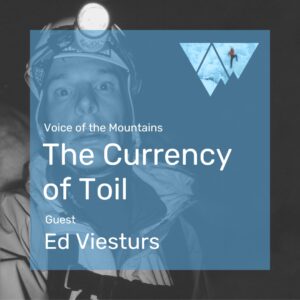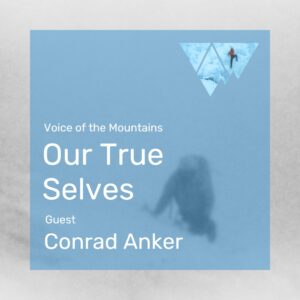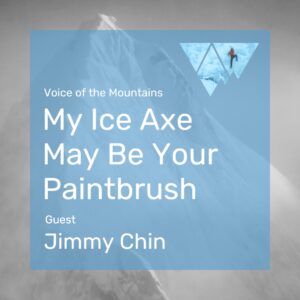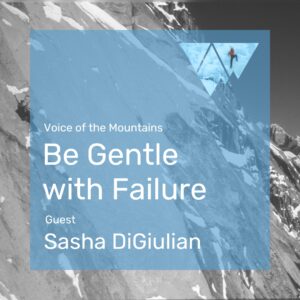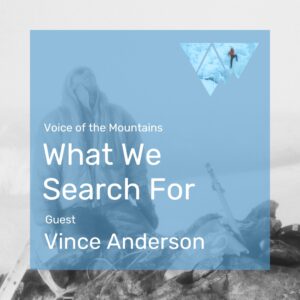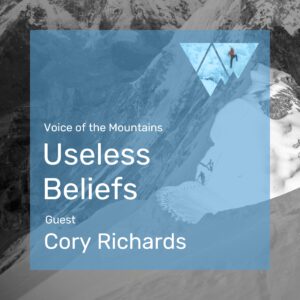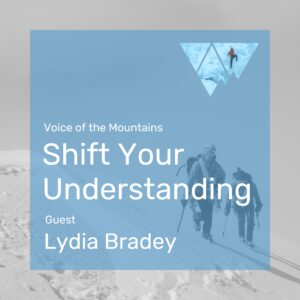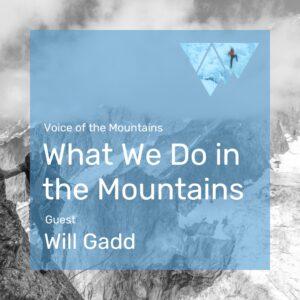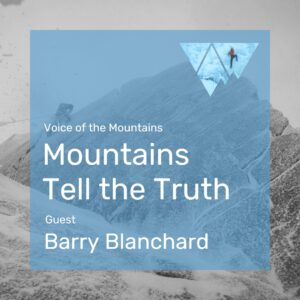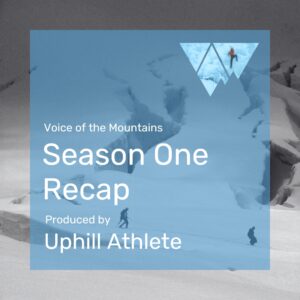
Essay: The Tyranny of Useless Beliefs
By Steve House
That very morning, like all other mornings, I had told myself a story of who I was, and how I brought value to the world—or not. Simply put, my value was climbing the biggest, hardest mountains in the world. And on that day, I couldn’t bring that value, and I’d have rather that I died.
That morning was our seventh on the wall. We’d awaken at midnight, packed up our one shared sleeping bag, drank a pot-full of luke-warm instant coffee and “ate” one gel apiece. We were somewhere around 23,000 feet up the world’s biggest wall. I was gasping for air and couldn’t keep up with Bruce anymore. He told me that I had early signs of pulmonary oedema. Which is an altitude illness where fluids pass back through lungs capillaries, fill up your alveoli, and you basically drown in your own blood.
Bruce knew he had to get me lower before my condition worsened and had forced my hand by refusing to climb any higher.
“Steve, we have to go down.”
I took ten breathes, willing the statement to disappear in the thin air. Then finally. “No. We’re too close”
“Steve, you won’t survive. I’m going to climb down to that last steep pitch and set up a rappel.” I sat in the snow for an hour before following him, reluctantly, down the Rupal Face.
Coming home from that failed climb, labeling myself as a failure, I could not help but notice that no one else labeled me with that word. I was angered. And with pen and paper I dug into the anger, unearthing shovelfuls of memories, reflections, and feelings too true to be spoken. One night turned into weeks of hard, sometimes-sweaty, often-shameful, and always-exhausting toil.
When I stared into the abyss I’d dug, one dichotomous question stared back at me: Did I, or did I not, matter? It was a simple question. Relief began to seep into me.
In turning us back and bringing me home Bruce helped me to dislodge the useless belief that I didn’t matter, that only my climbing mattered. But it took ten more years to lose it completely. And all the while it was limiting me and everything I did: Training, career, and definitely my relationships. Story gives shape and meaning to everything around us; we are storytellers. I, and you, weave events into plot and plot into theme and theme into meaning as easily as a bower bird weave grass into a nest. And often we stop there, with the theme. Your story is not the collection of events that have shaped you. It’s easier to climb and run than it is to dig and dig deep.
The truest story is what you’re trying to unravel, or understand, inside.
I started to write again. This new book, Training for the New Alpinism, wasn’t about me, it was about me sharing what I’d learned with others. Relief’s spikey rays streaked across the ending night-sky of my thoughts.
In 2016 my first son was born. And with him came the full brightness of my mattering. For the first time I saw how the story that I climbed mountains had become my identity. The mattering was not who I am, or what I do, but that I am, that I do. By seeing that identity, that story, fade from me I (re)solved for Zen’s famous beginner’s mind; and could simply be. And be me.
The truest story is what you’re trying to unravel, or understand, inside.
What story are you telling yourself by lacing up your shoes to go for one more run? One more race? One more climb? For me, the climbing and running quieted my mind, which is why I went back there again, and again. Is this story your identity? Does that identity carry weight? Grief? Pride? Joy? Be honest.
What if I told you that at the end of your next run you can recast your story, unravel the shame. And relief will then come. When you are finding your true story, your authentic self, you are the one you choose. The one where the next right action is aligned with your values, your purpose. In short, you. Simply you.
It’s not as easy as it can sound because the story you choose requires you to be braver, more attentive. For many of us climbing a big mountain or training harder on the trails is the easier thing to do. Looking in other, more uncomfortable places for our story is the real challenge. I wish for every Uphill Athlete to train until they reach this goal. The point that when the need ceases, you will, we all will, matter even then.
In this podcast episode with Cory Richards he explains how one of Zen Koans of the mountains seems to be that you have to go to the top of the mountain to realize that the top of the mountain doesn’t matter. Only the summit can illuminate its own insignificance. When you come down, you are changed. You can’t un-see, or un-learn. And matter you do.
The truest story is what you’re trying to unravel, or understand, inside.
Exploring the poetic soul of the mountains.
Voice of the Mountains explores the mental and emotional adventures found in discovering who we are and what we’re capable of. Here we engage in self-reflection and humility, and embrace the beauty and struggle of the alpine experience equally.

